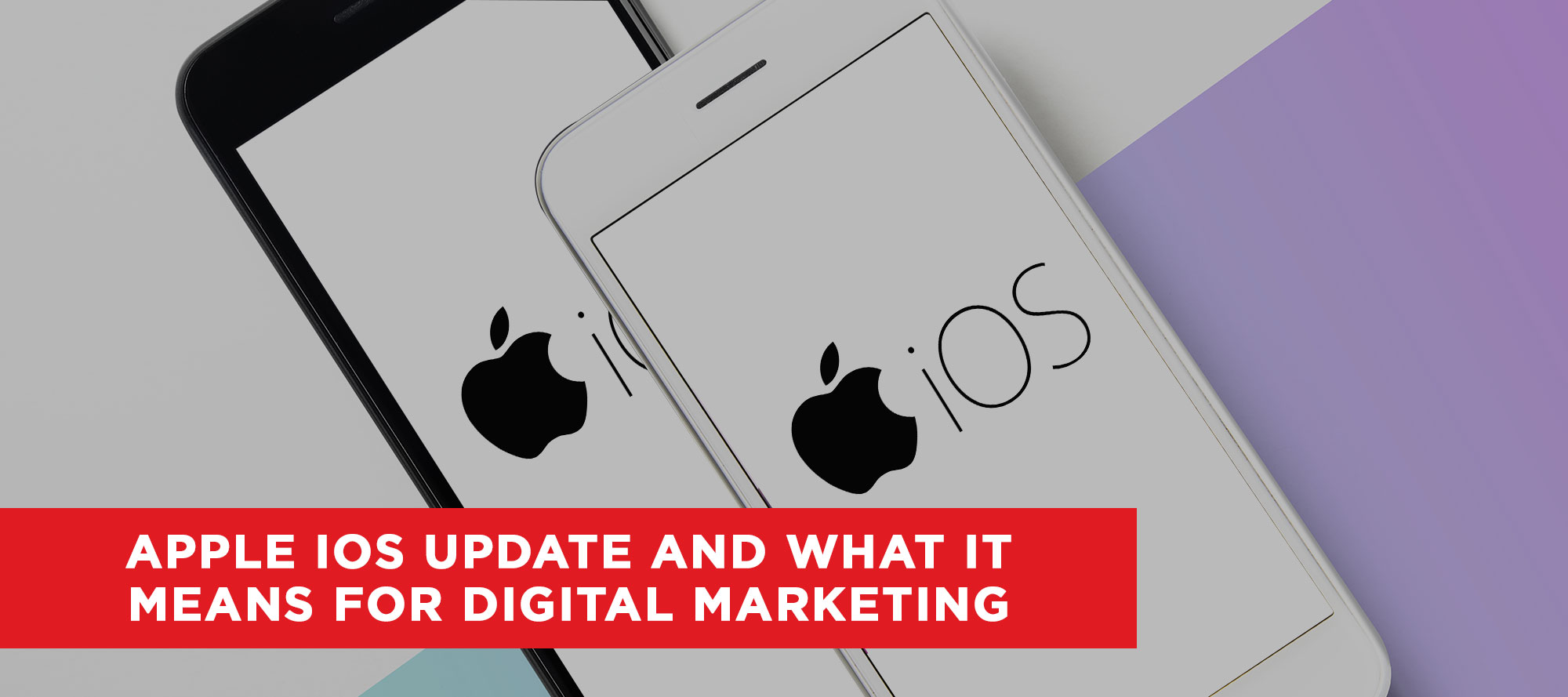If there is anything certain in digital marketing, it is that digital marketing will certainly change. For us as marketers and you as business owners, the thing to remember is to adapt or die.
That may sound a bit dramatic, but small changes can dramatically impact the success of your marketing if you do not stay informed and ahead of the game.
This is true for Apple’s latest iOS 14 platform update. Released this fall, the platform’s biggest changes are set to happen in the first half of 2021 and are likely to have a dramatic impact on digital marketing.
Why is it creating concern? In summer 2020, Apple announced that the new iOS 14 would include a one-time prompt on all apps that show and measure ads based on data from third-party sites and apps. The updates are designed to increase user privacy but significantly impact digital marketing’s effectiveness on some platforms by changing how the IDFA, or “Identifier for Advertisers” gets accessed.
The IDFA is a persistent device identifier assigned by Apple to a user’s device. It is used to track and identify a person without revealing personal information. This information is used in digital marketing to customize ad delivery. The IDFA allows for audience segmentation, ad targeting, measurement, attribution and even privacy choices.
The new iOS 14 includes a prompt on all apps that show and measure ads based on data from third-party sites and apps. Apps such as Facebook and numerous other mainstream platforms will be required to disclose the information they track and ask users’ permission to track their activity across other company’s websites. Browsers are also affected. In iOS 14, Safari’s Intelligent Tracking Prevention (ITP) will tell users how they are being tracked and what is being blocked.
This is significant because most iOS 14 users will opt out of tracking if they are specifically given an option, or prompt to do so. It is also significant because a lot of your potential customers are iOS 14 users.
Consider this:
Digital campaigns are predominantly mobile, and users are predominantly using iOS devices.
- Most web traffic, 50-70%, comes from mobile.
- Apple iOS owns 50% of the US smartphone market
- More than 25% of iPhone users updated to iOS 14 within 5 days of its release
What Will Be Affected?
The biggest changes will be surrounding conversion data, audience targeting, and data within ad managers and insights. It will affect whether attribution will be supported and how. Targeting ads by interest, demographics, or geography will no longer be possible. As people opt-out of tracking, retargeting lists will dramatically dwindle.
Responding to the Changes
While this news may send some into a tailspin, we at SD Marketing welcome the news. Why? We have always concentrated on the whole marketing story and not relied on being spoon-fed surface-level data. While Facebook and similar ad platforms have been able to provide granular information, this alone is not the deep information needed for truly successful strategies. That only comes from perpetually diving into the whole data story hidden in a wide range of sources, such as in your CRM’s data. It means that marketers will need to be smart, agile, and informed and prove campaigns by getting in the trenches and staying there.





Leave a Reply